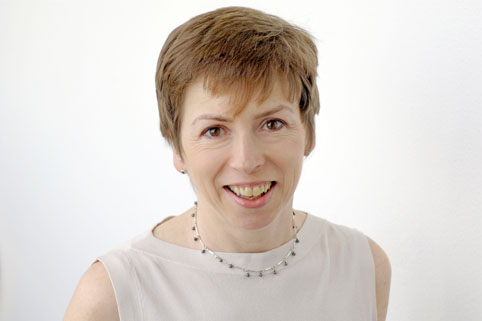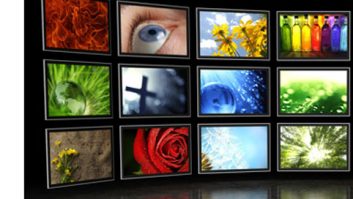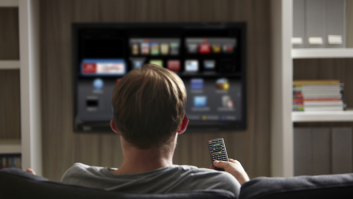
We have given this year’s IBC conference the overall title of ‘The Future of Media in an Age of Disruption’, setting up very nicely the issues we have to address.
In media, and especially in broadcasting, wherever we look we are facing disruption. The multi-channel, multi-platform, multi-device world is here. The transition from traditional broadcast hardware and connectivity to IT products, IP streaming and files is part of everyone’s roadmap.
What comes after HD? 4K? High frame rates? Extended colour gamut? Super Hi-Vision? What about the new players coming into broadcasting, Google’s YouTube to Twitter to Vice Media – all of which will be present at the conference.
Our conference committee brings together senior people from all sides of the industry, each of whom bring their own vision of the future. It can cause some lively debates in the committee but the result is a better conference!
The consultant editor for the conference is journalist and commentator Kate Bulkley, who has been a great resource in setting the direction, and I am extremely grateful for her energy and support.
The conference runs for a full five days, starting on Thursday 10 September, the day before the exhibition opens. That is very deliberate. We want our conference delegates to be stimulated by the issues raised and the questions asked in our sessions. And we want them to have time to go out onto the exhibition floor and start seeking answers from the vendors in the industry.
Thursday is our annual health check of the media business. But this is no navel-gazing day. Delegates will be challenged at every turn.
The opening session brings together CEOs from OSN in the Middle East, BBC Worldwide and Scripps Interactive in the USA. We conclude the day with a big picture session on how the internet era is impacting television, and how the industry is coping.
Friday’s theme is the core of the whole conference: Reinventing Broadcasting. We are pleased to have JB Perrette who is leading the push by Discovery Communications International to be one of the industry’s most progressive content providers.
On Saturday we look at the new digital-first players. What are the implications of Netflix and Amazon, Google and Facebook? We start the day with the CEO of Sling TV, Roger Lynch. Sling is part of one of the USA’s biggest pay-TV players, DISH, and Sling is a pay-lite, over-the-top pioneer.
On Sunday we prepare for the future today. BT has just announced the first 4K channel in Europe, and we have a keynote from the MD of BT Sport and BT TV, Delia Bushell, on how the broadcast model is changing, and how evolving communications technology will drive that change.
Monday sees the conference draw all its themes together. By long tradition, it is also the day we give the Auditorium over to debates and demonstrations on the future of cinema.
The conference is divided vertically, too. This year we are presenting six streams: Business Operations, Content Innovation, What Caught My Eye, Strategic Insights, Advances in Technology, New Disruptors plus we also have the IBC Big Screen Experience. Whatever your role – creative, commercial or engineering – there are sessions tailored to you, where you can share knowledge and experience.
Augmented reality and wearables
The broadcast business is full of challenges today, not least because of new consumer demands. That is why we are looking at more intuitive user interfaces and on-screen guides
Why are companies like Viacom and Liberty Global broadening their business models by adding free television from pay only, and getting into the production of content rather than just the delivery? Content is king, and the creative community continues to innovate in the look and feel of what we produce.
Presentations and demonstrations are joined by a daily session that looks at exciting new innovations such as augmented reality and wearables. These sessions are linked to the IBC Future Zone, the part of the exhibition where researchers get to show prototypes of what might go on to become the hit product of IBC in years to come.
The technical papers remain a central part of the IBC Conference. Long recognised as the most respected platform to discuss the latest in research and development, competition to get into this peer-reviewed section of the programme remains fierce.
Once more we are inviting new entrants to the industry to take part in the IBC Rising Stars programme. This includes tailored and exclusive conference sessions looking at the specific issues facing young professionals keen to make a mark in the industry.
Perhaps most important, it is a great networking opportunity, not just with fellow newcomers but with many of the established industry leaders.
IBC Big Screen Experience
Last, but definitely not least, we will once again be converting the Auditorium in the RAI to the IBC Big Screen Experience with the absolute state of the art in cinema technology. It plays host to conference sessions, including free sessions on high dynamic range production, and special presentations by motion picture industry leaders. We even manage to fit in a couple of movie screenings – look out for details of this year’s films coming soon.
This is just a tiny fraction of what we have lined up for this year’s conference. Some is not even finalised yet: we are still monitoring the moves in the industry and adapting our plans accordingly.
You can see the conference programme as it develops, and find out about all our speakers, at www.ibc.org/conference.
Registration is now open, so you can choose the right pass and make plans for which conference sessions are must-attends for you. I look forward to seeing you in Amsterdam.







